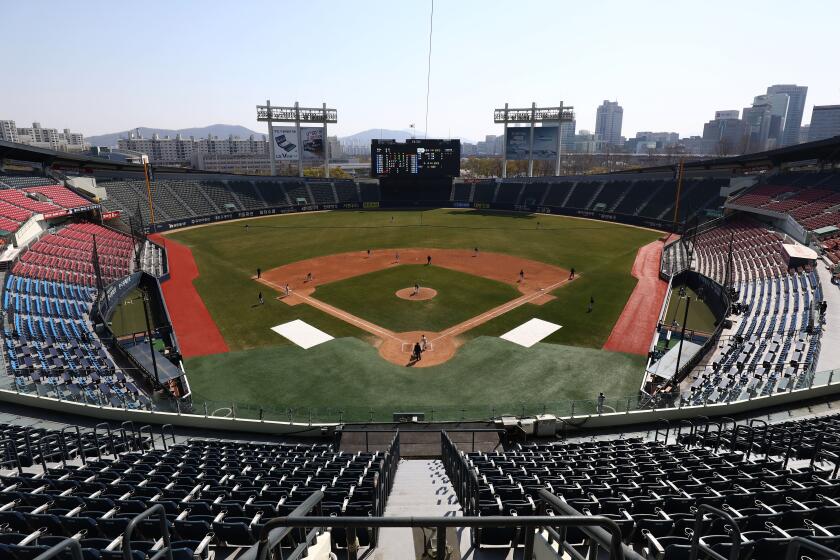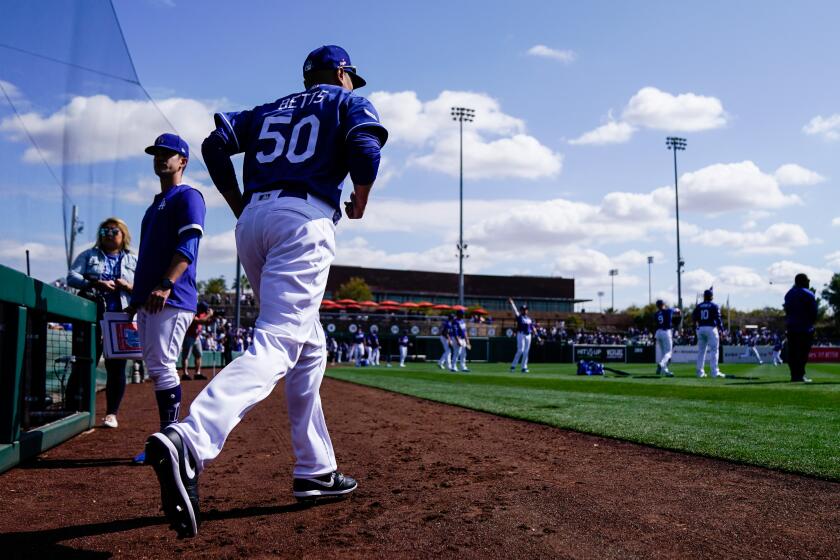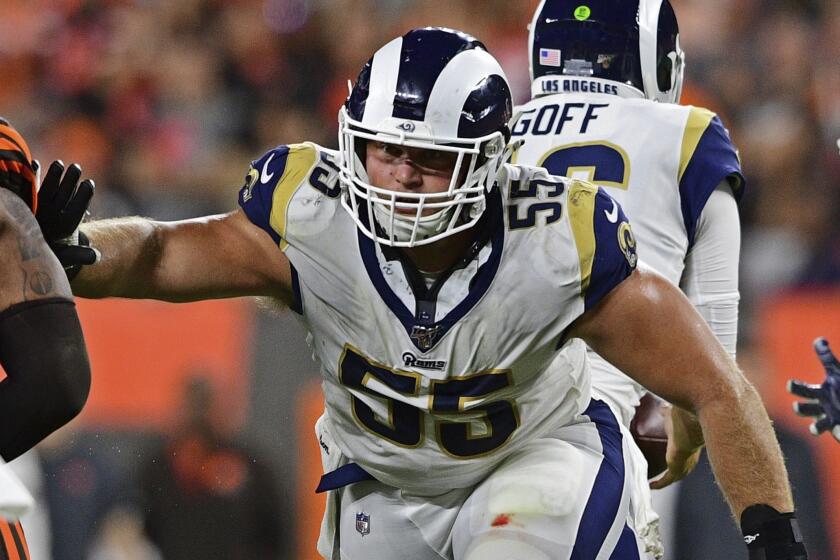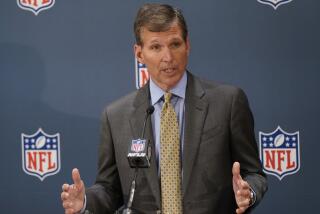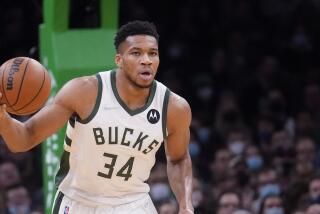Column: It looks like the sports world could be in a timeout until 2021
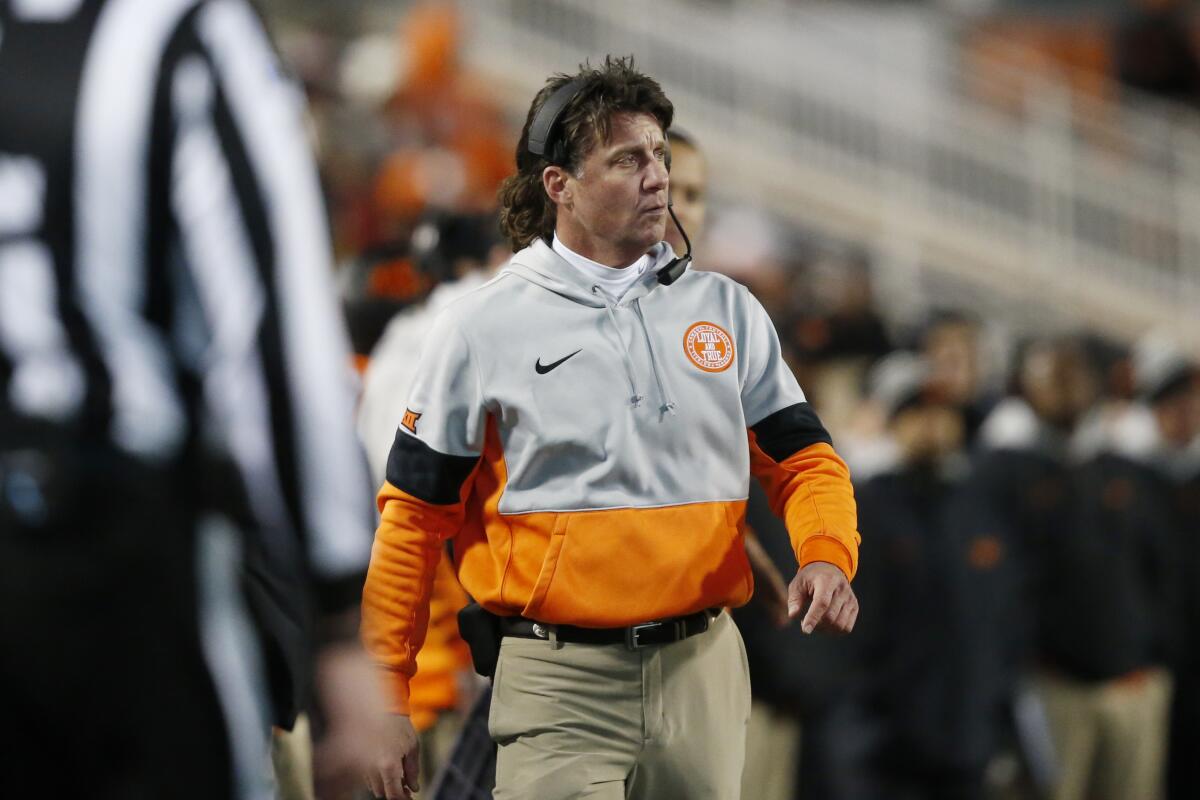
The folks at Major League Baseball suggest restarting the sport while sheltering at home plate.
The officials of the NBA are discussing the use of a rapid-response testing device that would eschew load management for blood management.
A college football coach from Oklahoma State named Mike Gundy has proclaimed that, dad-gummit, his team is getting back to business on … May 1?
“We’ve got to get these guys back in here,” Gundy told reporters in a teleconference this week. “From what I read, the healthy people can fight this … we all need to go back to work.”
Like most segments of the population, the sports world indeed needs to go back to work, and with every day, it’s understandable desperation is showing. Yet with every day, its solutions for a return sound sillier, and its false hope does more damage.
Ignore the leagues, mute the coaches, and listen to the science regarding COVID-19.
There is a realistic chance the sports world will be benched until 2021.
Since a development and widespread utilization of an effective coronavirus vaccine is probably many months away, and because serological testing of those who have immunity to the virus is at least several months away, the clock has seemingly run out on the current and upcoming seasons of this country’s major sports.
You keep waiting for someone to say it ain’t so, but all evidence says it’s absolutely so.
A look at how sports leagues, including the NFL, MLB, MLS, NBA and NHL, are responding to the coronavirus outbreak.
The latest voice of realism comes from Dr. Jeffrey Smith, Santa Clara County executive officer, who addressed that county’s Board of Supervisors on Tuesday in words that appeared in a Times’ story by Rong-Gong Lin II.
Smith said he did not anticipate “any sports games until at least Thanksgiving, and we’d be lucky to have them by Thanksgiving. This is not something that’s going to be easy to do.”
Smith came as close as anyone to saying what many have been dreading, but it’s time to start accepting.
Just as everything else in our world has been inexorably altered, so, too, have sports. It’s not invincible. It’s not immune. It’s never over until it’s over, but this feels pretty much over.
The NBA is probably done. The Lakers’ and Clippers’ seasons are almost certainly ruined. Just look at the China Basketball Assn., which has already postponed a scheduled restart once and is now looking at a minimum four-month shutdown.
A similar delay would push the NBA season into September, which would risk ruining two seasons.
ESPN reported that the league is exploring returning to action through the use of rapid-response blood tests, but even if the efficacy of those tests is proven, why would NBA players be first in line over millions of others Americans eager to get back to work?
Baseball is also probably done. The Dodgers’ status as World Series favorite has likely ended. The number of players and personnel involved in each game makes it more difficult to restart than basketball, and there’s no way they could actually start a season in the winter.
Would bringing back MLB amid the coronavirus crisis be a morale boost for a quarantined nation or an audacious grab of medical resources? Or both?
There was talk this week of playing in virtual quarantine in Arizona, as if such widespread safety could be guaranteed, and as if players would actually agree to be away from their families for nearly five months. The notion was so vehemently shouted down by a disbelieving public that the league quickly put out a statement puncturing its trial balloon.
“We have not sought or received approval of any plan from federal, state or local officials,” the league stated, adding later, “We are not ready at this time to endorse any particular format for staging games.”
Football is also probably done, at least for this calendar year. The NFL can make headlines with free agency and its virtual draft, but none of those players will probably be allowed to hit the field until sometime in the late fall. College coaches can spout all they want about their kids being tougher than any lil’ old virus, but they aren’t.
The best case for football would seem to be a season that starts in January and runs through spring, for college and pros. Sounds drastic, but is that such a bad thing? That would work, right?
When looking for real optimism here, perhaps that is where we should train our eyes, on the potential excitement in sports’ new realities.
Can you imagine a Super Bowl in April, maybe the week after baseball’s opening day and the week before the Masters? Or how about a college football season that runs concurrently with college hoops, basketball being played during the week and football on weekends? What about a national championship football game on the Sunday in the middle of college’s basketball’s Final Four?
Then there’s the fun of a reconfigured NBA schedule that, face it, already needed fixing. Start the season in January, play through August, and make that permanent. That’s basically what at least one owner suggested before the pandemic.
The biggest hit in all of this would be taken by baseball, but there seems to be no solution to a lost season. The pandemic’s timeline is mirroring the timeline of baseball’s schedule. There appears to be no other outcome than to record 2020 as a shutout.
A look at athletes, coaches and others in the sports world who have tested positive of the coronavirus.
The economic impact of the long-term shuttering of sports is tremendous, and will be fought by officials from baseline to baseline, but on this field, science owns the scoreboard.
Listen now to Dr. Neal ElAttrache, the renowned team physician of the Dodgers and Rams, who admits it’s going to be tough. “I do think it’s medically feasible that you could reopen the three sports this year,” he said. “But to have any sort of normal fan experience would be extremely difficult, if not impossible.”
Like other scientists, ElAttrache said that for the sports world to return with fans, it would require a vaccine. “But I think you’re talking about well into the fall until you can widely disseminate a vaccine,” he said.
In the meantime, he said it’s possible for the players to return if they have access to antibodies tests that can determine if someone is immune to COVID-19. Yet the serological testing has not yet been widely approved by the Food and Drug Administration.
“That’s the bridge to the vaccine, that’s the key,” said ElAttrache. “To make those tests widely available, that’s absolutely critically necessary to play this year.”
That’s a longshot and, again, even if those tests are suddenly available, why should athletes get priority?
Sports will eventually be back, but this country is facing much more important issues right now. Cradle your glove, wear your jersey, enjoy the replays, and wait till next year.
More to Read
Go beyond the scoreboard
Get the latest on L.A.'s teams in the daily Sports Report newsletter.
You may occasionally receive promotional content from the Los Angeles Times.

